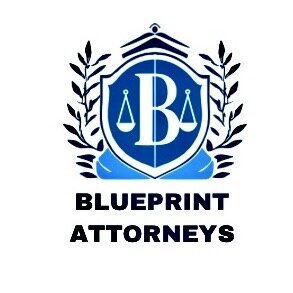Best International Trade Law Lawyers in Aba
Share your needs with us, get contacted by law firms.
Free. Takes 2 min.
List of the best lawyers in Aba, Nigeria
About International Trade Law in Aba, Nigeria
International Trade Law in Aba, Nigeria, encompasses a wide range of rules and regulations governing the exchange of goods and services between Nigeria and other countries. As a bustling commercial hub in southeastern Nigeria, Aba plays a significant role in Nigeria's trade activities, including importation and exportation. Businesses and individuals involved in international trade must navigate laws that affect customs, tariffs, trade agreements, and dispute resolutions. Compliance with both Nigerian law and international trade agreements is crucial for smooth and legal operations.
Why You May Need a Lawyer
There are several situations where individuals or businesses in Aba may require legal assistance in International Trade Law. These include:
- Navigating complex international trade agreements and understanding how they affect your business operations.
- Handling disputes arising from international trade transactions, such as breaches of contract or disagreements over tariffs and duties.
- Ensuring compliance with Nigerian and international trade regulations to avoid penalties and fines.
- Drafting and reviewing contracts related to import and export activities.
- Representing you in negotiations or arbitrations with foreign trade partners.
Local Laws Overview
Aba, Nigeria, operates under both federal and local trade laws that impact international commerce. Key aspects include:
- Customs and Excise Management Act: Governs customs duties, import and export regulations ensuring that appropriate tariffs are paid.
- Export (Incentives and Miscellaneous Provisions) Act: Provides incentives for local businesses engaging in export activities.
- Standards Organization of Nigeria (SON): Ensures compliance with Nigerian quality standards for imported and exported goods.
- Nigerian Customs Service: Responsible for enforcing customs laws and combating smuggling.
- Federal Competition and Consumer Protection Commission (FCCPC): Protects consumer interests in trade practices and competition within Nigeria.
Frequently Asked Questions
1. What is the role of the Nigerian Customs Service in international trade?
The Nigerian Customs Service plays a crucial role in regulating imports and exports, collecting customs duties, and preventing smuggling activities at borders.
2. How can I ensure compliance with trade regulations in Aba, Nigeria?
Engaging a legal expert in International Trade Law can assist with understanding and complying with local and international trade regulations, ensuring all documentation is accurate and complete.
3. What are some common trade agreements affecting Nigeria?
Nigeria is a member of the World Trade Organization (WTO) and participates in regional agreements like the African Continental Free Trade Area (AfCFTA), which impact trade laws and regulations.
4. What legal issues commonly arise in international trade in Aba?
Common legal issues include contractual disputes, non-payment, non-delivery of goods, and customs complications.
5. How do tariffs affect international trade in Aba?
Tariffs are taxes imposed on imported goods, affecting their price and competitiveness. Legal guidance can help manage tariff classifications and payments.
6. Can disputes in international trade be settled out of court?
Yes, many international trade disputes are resolved through arbitration or mediation rather than court proceedings, particularly if stipulated in trade contracts.
7. What documentation is essential for international trade transactions?
Key documents include commercial invoices, bills of lading, certificates of origin, import/export licenses, and customs declaration forms.
8. Are there benefits for exporters in Aba, Nigeria?
Exporters may benefit from government incentives like tax rebates and financial support to encourage exporting, as stipulated in the Export (Incentives and Miscellaneous Provisions) Act.
9. What should I consider when drafting a trade contract?
A trade contract should clearly outline the terms of sale, delivery, payment terms, dispute resolution methods, and compliance requirements with relevant laws.
10. How can I find a qualified International Trade Lawyer in Aba?
Seek recommendations from local business associations, conduct online research for law firms specializing in international trade, and consult with local legal directories.
Additional Resources
For additional help or resources regarding International Trade Law in Aba, consider reaching out to:
- Nigerian Export Promotion Council (NEPC): Provides support and advice to exporters.
- Chambers of Commerce in Aba: Great networks for local business information and potential legal referrers.
- African Continental Free Trade Area (AfCFTA): Information on regional trade agreements.
Next Steps
If you need legal assistance with International Trade Law in Aba, consider these steps:
- Assess the specific legal needs of your business or trade activities.
- Research and identify law firms or legal practitioners specializing in International Trade Law in your area.
- Schedule consultations to discuss your legal challenges and evaluate potential legal representations.
- Gather all relevant documentation, including trade agreements, contracts, and correspondence, to provide complete information to your lawyer.
- Consider joining local trade associations or business groups for networking and support.
Lawzana helps you find the best lawyers and law firms in Aba through a curated and pre-screened list of qualified legal professionals. Our platform offers rankings and detailed profiles of attorneys and law firms, allowing you to compare based on practice areas, including International Trade Law, experience, and client feedback.
Each profile includes a description of the firm's areas of practice, client reviews, team members and partners, year of establishment, spoken languages, office locations, contact information, social media presence, and any published articles or resources. Most firms on our platform speak English and are experienced in both local and international legal matters.
Get a quote from top-rated law firms in Aba, Nigeria — quickly, securely, and without unnecessary hassle.
Disclaimer:
The information provided on this page is for general informational purposes only and does not constitute legal advice. While we strive to ensure the accuracy and relevance of the content, legal information may change over time, and interpretations of the law can vary. You should always consult with a qualified legal professional for advice specific to your situation.
We disclaim all liability for actions taken or not taken based on the content of this page. If you believe any information is incorrect or outdated, please contact us, and we will review and update it where appropriate.









